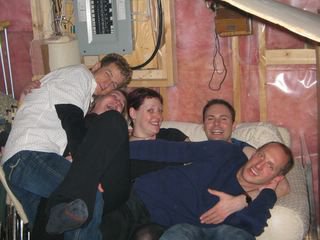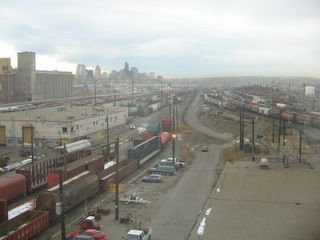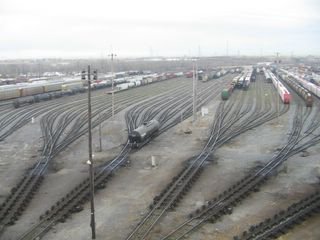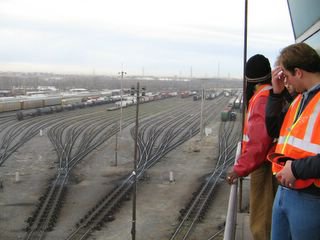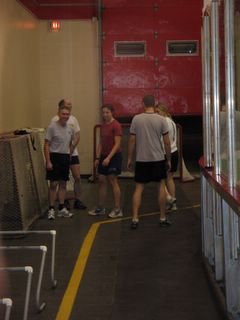On the weekend of the 18th & 19th my mom and dad were in Red Deer to visit my brother, sista-in-law, and my new niece Trezlie. My cousin Scott and his wife Jen and their three daughters were over at Owen and Chloe's for dinner on Saturday night. Owen had to work on Sunday, and the women wanted to shop, so I spent most of the day hanging out with my dad and solving the world's problems.

Grandpa and Trezlie

Grandma and Trezlie

Chloe & Trezlie
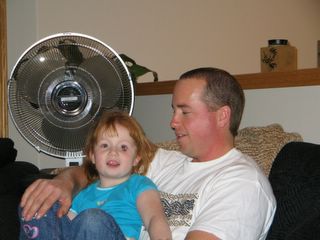
Scott & Jordyn

Kennedie

Hailey
I thought I'd add a few shots of the chinook clouds that blew through town on the following Tuesday to give you another view at they moved east from Jeff's house over downtown. The Chinook Arch can be quite dramatic, and the temperature can change 10-15C in a matter of minutes when the big ones roll through.

Chinook Arch, November 22

Chinook Arch, November 22
Last weekend was very busy. Friday night started out at a farewell party for my friend and running mate Darren who is moving to Vancouver this week. Another one heads for the Left Coast. I practically know more people in Vancouver now than I do in Calgary! After the party at MoneyPennies, Patrick and I went to a fundraiser for the Apocalypse Scooter Club put on by our friends Noel and Allie. It was a lot of fun with DJ Melo-D playing funky soul and lots of titties from the Kabuki Guns burlesque. Afterwards Pat and I went to Pulse because Darren and crew were supposed to be going there after MoneyPennies, but alas they didn't show up. We hung around for the dance performances - they showed off their titties too. I was quite impressed by the amount of female breasts I saw that night without making an effort!
Saturday morning was running, workout at Peak Power, Apollo curling game at NHCC, and immediately home to get ready for the Telus Mobility Xmas party. What a non-stop day. I needed lots of prayers before the dinner in order to maintain my sanity and kill the hangover and lack of sleep from the night before. A lot of wine at the dance afterwards made things even more painless. We slithered home once the lights came on.

Joe & Reid @ Telus Mobility Xmas Party, November 26

Joe & Reid @ Telus Mobility Xmas Party, November 26
Joe had to work at Swan's on Sunday, so Ryan and I went down there to watch the Grey Cup after we burned some CDs and shopped for groceries. I won $25 from the Q1 score in the Pool, so that helped to buy drinks at the end of the night.

Ryan, Kirsten, Reid @ Swan's
This week is pretty frenzied. The final round of layoffs at work swept through the office today, and I found out that we were pretty close to losing one body off of our team, however the situation worked in our favor and we're still intact (and still short-staffed). Oh well. I was praying (in several ways) that I'd get the layoff papers. I'd be nice to try something different. I'm pretty ambivalent either way. Joe and I are working through our mortgage pre-assessment this week. There was a townhouse that opened up in Inglewood on the weekend, but we won't have our ducks lined up in time to put an offer on it. We drove past it on Sunday. I think we can find something better, so I'm not really concerned about this one.
I'm quite relieved to say there's NOTHING planned for next weekend, save for the obligatory running, workout and curling. It would be nice to stay low profile this weekend. I have tons of work to do on the Synergy Club financials that I'd like to take a big bite out of this weekend, since the Xmas party season starts in full earnest the following weekend.









